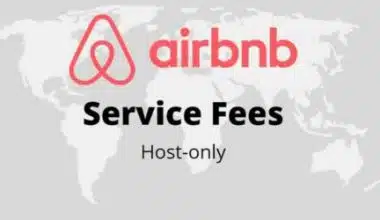Discover a diverse array of short-term rental companies when selecting your ideal home away from home for your upcoming journey. Short-term rental companies facilitate short-term accommodations for less than six months. Popular platforms for property owners and travelers to list and book accommodations will be outlined in this post. Platforms like Keycafe offer secure key storage, as Airbnb connects hosts and guests, while VRBO focuses on privacy and amenities. Here, we have listed about 10 best short-term rental companies that you can choose from.
Best Short-Term Rental Companies
Short-term rental companies are businesses that facilitate the rental of accommodations for short periods, mostly less than six months. These companies provide a platform or marketplace where property owners can list their properties for rent, and travelers or guests can book these accommodations for their short-term stays.
These are some short-term rental companies:
#1. Keycafe
Keycafe is a short-term rental company based in Canada. They provide a unique service that allows property owners to securely store and share keys with guests. Keycafe has partnered with various businesses, such as cafes and convenience stores, where property owners can drop off their keys.
#2. KeyNest
KeyNest is a short-term rental company. It offers a key exchange service for property owners and guests. They have partnered with local businesses, such as shops and hotels, where property owners can securely store their keys.
#3. Stasher
Stasher is a short-term rental company based in the UK. They specialize in luggage storage services for travelers. Stasher provides a network of trusted storage locations and offers insurance coverage for stored luggage.
#4. VTrips
VTrips is a premier vacation rental property management company. They offer a comprehensive range of services for property owners who want to rent out their vacation homes or investment properties. VTrips handles various aspects of property management, including marketing, guest communication, bookings, cleaning, and maintenance.
#5. Airbnb
Airbnb is a well-known global short-term rental platform that connects hosts and guests. It allows property owners to list their homes, apartments, or rooms for short-term rentals, while travelers can search and book accommodations based on their preferences.
#6. VRBO (Vacation Rentals By Owner)
VRBO is a popular short-term rental platform that connects property owners with travelers. It offers a wide range of rental property types, and travelers can search for accommodations based on their preferences. VRBO emphasizes privacy and amenities, and it has a family-friendly focus.
#7. HomeAway
HomeAway is a vacation rental marketplace that connects property owners with travelers. It offers a wide range of rental options, including beach houses, cabins, condos, and villas. HomeAway provides tools for property owners to manage their listings and communicate with guests, while travelers can search and book accommodations directly through the platform.
#8. FlipKey
TripAdvisor is the owner of the vacation rental platform FlipKey. It features a diverse range of short-term rental properties, including apartments, houses, and villas. Property owners can list their rentals on FlipKey, and travelers can browse and book accommodations based on their preferences.
#9. Sonder
Sonder is a unique short-term rental company that offers fully furnished apartments in various cities around the world. They specialize in providing hotel-like amenities and services in their rental properties, such as keyless entry, 24/7 support, and professional cleaning.
#10. OneFineStay
OneFineStay is a luxury short-term rental company that focuses on providing upscale accommodations in major cities. They curate a collection of high-end homes, villas, and apartments and offer personalized services to guests, including concierge assistance and in-stay support.
Short-Term Rental Companies Airbnb
Airbnb is among the most well-known and well-liked short-term rental businesses. Since its founding in 2008, Airbnb has completely changed how consumers search for and reserve short-term lodging.
Features of Airbnb
#1. Description
Airbnb is an online marketplace that connects travelers with hosts who have available accommodations. It offers a wide range of options, including private rooms, entire apartments or houses, and unique properties like tree houses or castles.
#2. Global Presence
Airbnb operates in over 191 countries and has millions of listings worldwide. Whether you’re looking for a cozy apartment in a bustling city or a beachfront villa in a tropical paradise, Airbnb offers a diverse selection of accommodations to suit various preferences and budgets.
#3. Booking Process
To book a stay on Airbnb, travelers create an account, search for listings in their desired location, and select the dates of their stay. They can then communicate with hosts, ask questions, and review property details and photos. Once they find a suitable listing, they can proceed with the booking by submitting a reservation request and making a payment through Airbnb’s secure platform.
#4. Hosts
Airbnb allows individuals, property owners, or even businesses to become hosts and list their properties for short-term rentals. Hosts can offer a variety of accommodations, including spare rooms, entire apartments, houses, or even unique properties like yurts or boats.
#5. Guests
Travelers looking for short-term accommodations can browse through Airbnb’s vast selection of listings. They can filter search results based on location, price, property type, amenities, and more. Guests can also read detailed descriptions, view photos of the accommodations, and check availability for their desired dates.
#6. Host and Guest Reviews
Airbnb encourages both hosts and guests to leave reviews after each stay. These reviews provide valuable feedback and help build trust within the community. Travelers can read reviews from previous guests to get insights into the quality of the accommodation, the host’s hospitality, and other relevant details.
#7. Long-Term Rentals
In addition to short-term stays, Airbnb also offers monthly rentals for those looking for longer-term accommodations. This option is ideal for individuals or families who need a place to stay for several weeks or months, such as during a relocation, extended work assignment, or renovation of their own home.
#8. Regulations and Compliance
Short-term rental regulations vary by location, with some cities having specific licensing, tax, and zoning restrictions. Hosts and guests should familiarize themselves with local laws and comply with any applicable rules.
#9. Platform Safety and Trust
Airbnb employs various measures to ensure the safety and trustworthiness of its platform. This includes a secure payment system, identity verification for hosts and guests, and a review system that allows users to leave feedback about their experiences.
#10. Experiences and Adventures
In addition to accommodations, Airbnb also provides experiences and adventures for travelers. These can range from guided tours and workshops to unique activities and cultural immersions. Guests can book these experiences to enhance their travel experience and gain a deeper understanding of the local culture.
Biggest Short-Term Rental Companies
The biggest short-term rental companies include Keycafe, KeyNest, Stasher, VTrips, and Airbnb. These companies offer various services such as key exchange, luggage storage, property management, and connecting hosts with guests.
Limitations of Short-Term Rental Companies
While short-term rental companies have gained popularity and transformed the way people travel and find accommodations, there are some limitations associated with these platforms.
#1. Regulatory Challenges
Short-term rental companies often face regulatory challenges and restrictions imposed by local governments. These regulations can vary widely from one jurisdiction to another and may include limitations on the number of rental days, licensing requirements, zoning restrictions, and tax obligations.
#2. Impact on Housing Availability
Critics argue that the rise of short-term rentals has contributed to a decrease in available housing for long-term residents. Some hosts may choose to convert residential properties into full-time short-term rentals, reducing the housing supply in certain areas and potentially driving up rental prices for residents.
#3. Neighborhood Disruption
Short-term rentals can sometimes disrupt the quiet of residential neighborhoods. Concerns include increased noise levels, frequent turnover of guests, and potential conflicts between guests and permanent residents.
#4. Quality Control
While many short-term rental platforms have review systems in place, it can be challenging to ensure consistent quality across all listings. Guests may encounter variations in cleanliness, amenities, and overall experience, as the quality of accommodations can vary depending on individual hosts.
#5. Safety and Security
While short-term rental platforms implement safety measures, such as identity verification and secure payment systems, there is still a risk of fraudulent listings or unsafe situations. Guests should exercise caution and carefully review property details, host reviews, and safety guidelines before making a booking.
#6. Economic Impact
The growth of short-term rentals has raised concerns about their impact on the local economy. Traditional hotels and hospitality businesses may face increased competition, potentially affecting their revenue and employment opportunities.
#7. Cancellation Policies
Short-term rental companies have their cancellation policies, which can vary from flexible to strict. Guests may face penalties or limited refunds if they need to cancel or modify their bookings, especially if they have booked well in advance. This can be a source of frustration and financial loss for travelers.
#8. Service Fees
Short-term rental platforms charge service fees to both hosts and guests. While these fees cover various services provided by the platform, they can add to the overall cost of the booking. Guests may find that the total price of the accommodation, including service fees, is higher than initially expected.
#9. Inconsistent Standards
Short-term rental companies rely on hosts to maintain and manage their properties. As a result, there may be inconsistencies in the standards of cleanliness, maintenance, and amenities across different listings. Guests may encounter properties that do not meet their expectations or match the descriptions provided on the platform.
#10. Reliance on Online Platforms
Short-term rental companies primarily operate through online platforms, making them vulnerable to technical glitches, website outages, or connectivity issues. This can lead to difficulties in making or managing bookings, especially if there is a lack of customer support or alternative channels of communication.
Features That Can Be Associated With Top Short-Term Rental Companies
#1. Wide Range of Accommodations
The best short-term rental companies offer a diverse selection of accommodations, including private rooms, entire apartments or houses, unique properties, and even luxury options. This allows travelers to find accommodations that suit their preferences and budget.
#2. Booking Convenience
Top short-term rental companies provide user-friendly platforms or mobile apps that make it easy for travelers to search for listings, view property details, check availability, and make bookings. They often offer advanced search filters and sorting options to help users find the perfect accommodation.
#3. Secure Payment Systems
Reputable short-term rental companies prioritize the security of financial transactions. They offer secure payment systems that protect the personal and financial information of both hosts and guests.
#4. Review and Rating Systems
The best short-term rental companies have review and rating systems in place, allowing guests to provide feedback on their experiences. These systems help build trust and transparency within the community and assist future travelers in making informed decisions.
#5. Customer Support
The best short-term rental companies provide reliable customer support to address any issues or concerns that hosts or guests may have. This can include assistance with bookings, resolving disputes, or providing guidance on platform usage.
#6. Host and Guest Verification
Reputable short-term rental companies prioritize safety and trust. They often have verification processes in place for hosts and guests, which can include identity verification and background checks.
#7. Property Management Services
Some top short-term rental companies offer property management services to assist hosts in managing their listings. These services can include tasks such as property setup, guest communication, cleaning and maintenance coordination, and pricing optimization.
#8. Dynamic Pricing
The best short-term rental companies may offer dynamic pricing tools or algorithms that help hosts optimize their rental rates based on factors such as demand, seasonality, and local events. This can help hosts maximize their revenue and occupancy rates.
#9. Insurance and Protection
Some top short-term rental companies offer insurance or protection programs for hosts and guests. These programs can provide coverage for property damage, liability, and other unforeseen circumstances, offering peace of mind to both hosts and guests.
#10. Legal and Regulatory Compliance
Reputable short-term rental companies prioritize legal and regulatory compliance. They may provide resources and guidance to hosts regarding local laws, permits, taxes, and other legal requirements related to short-term rentals.
What Is The Largest Short-Term Rental Platform?
The largest short-term rental platform is Airbnb. Airbnb is widely recognized as the largest and most popular short-term rental platform globally. It has a significant market presence, with a high amount of traffic and brand recognition among hosts and guests Airbnb offers a wide range of accommodations and has a user-friendly platform that allows users to search for listings, view property details, and make bookings. It is known for its extensive reach and ability to connect hosts with a large number of potential guests.
Who Is Airbnb’s Competitor?
Airbnb’s main competitor in the short-term rental market is Vrbo (Vacation Rentals By Owner). Vrbo offers a wide range of vacation rental properties and has a global reach with listings in over 190 countries. Vrbo competes with Airbnb in terms of market presence, user base, and the variety of rental options available. Other notable competitors in the short-term rental market include Booking.com, TripAdvisor, HomeToGo, 9flats, and Plum Guide. These platforms offer similar services and compete with Airbnb in attracting hosts and guests to their respective platforms.
What Is The Most Popular Vacation Rental Company?
Airbnb is widely regarded as the most popular vacation rental company. It has a significant market presence, with over 6 million vacation rental listings worldwide in more than 220 countries and regions. Airbnb has a large community of hosts and guests, and it is recognized as a trusted and recognizable brand in the vacation rental industry. The company has facilitated billions of dollars in bookings and offers a user-friendly platform for both hosts and guests.
How Do You Maximize Profit On Short-Term Rentals?
To maximize short-term rental profits, track revenue and expenses, choose a suitable property, optimize pricing, enhance the guest experience, effectively market the property, automate tasks, monitor performance, select a favorable location, offer additional services, and maintain positive reviews. Remember that profitability can vary based on location and market conditions, so adapt your approach to suit your specific circumstances and guest preferences.
What Is The World’s Largest Rental Company?
United Rentals is considered the world’s largest rental company. It is an American publicly traded company and holds approximately 16% of the North American market share in the equipment rental industry. United Rentals owns the largest rental fleet globally, with a wide range of equipment classes and an estimated original equipment cost of about $19.3 billion. The company operates in multiple locations across North America, Europe, Australia, and New Zealand, with a total of 1,449 locations.
What Is The Average Profit For A Short-Term Rental Property?
The average profit for a short-term rental property can vary depending on various factors such as location, property type, market conditions, and individual strategies. The average annual income for a short-term rental host is estimated to be around $58,955 to $60,110.51, with an average daily rate ranging from $162 to $286.91.
How Do I Market My Short-Term Apartment?
To effectively market a short-term apartment, create an appealing listing, optimize pricing, utilize vacation rental platforms, enhance online presence, leverage social media, encourage guest reviews, collaborate with local businesses, offer incentives, provide excellent guest experience, and stay updated on regulations. Continuously monitor and adjust marketing efforts to maximize visibility and bookings.
Conclusion
Airbnb, founded in 2008, is a popular short-term rental platform that connects travelers with hosts worldwide. With millions of listings, it offers a diverse range of accommodations, from private rooms to unique properties. However, they face regulatory challenges, impact housing availability, neighborhood disruption, quality control, and safety risks. They offer a wide range of accommodations, booking convenience, and top-notch services. These companies prioritize safety, trust, and transparency, allowing travelers to find the perfect accommodation and make informed decisions.
- BIGGEST CAR RENTAL COMPANIES IN CANADA IN 2023
- HOW TO BE AN AIRBNB HOST: Detailed Guide
- HOW TO LIST ON AIRBNB: The Ultimate Guide
- 10 BEST CAR RENTAL APP IN USA 2023
- HOW TO START AIRBNB BUSINESS: Step-by-Step Guide






